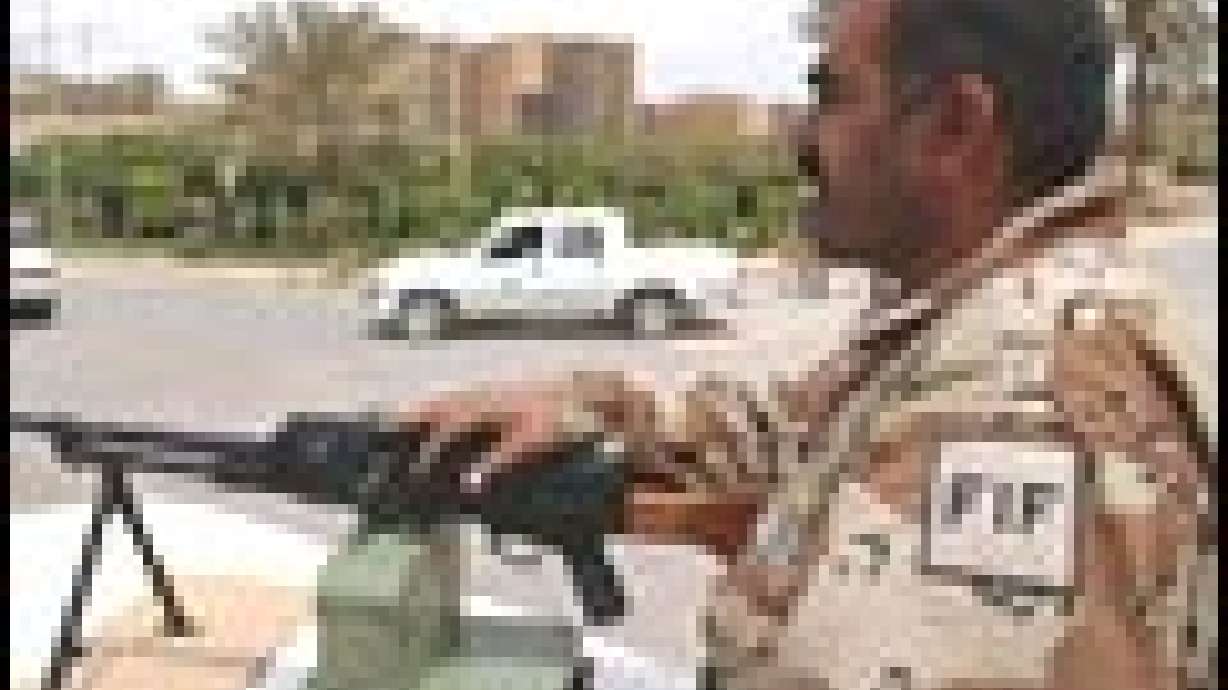Estimated read time: 4-5 minutes
This archived news story is available only for your personal, non-commercial use. Information in the story may be outdated or superseded by additional information. Reading or replaying the story in its archived form does not constitute a republication of the story.
BAGHDAD, Iraq (AP) - Iraq's military and the security organizations that supported Saddam Hussein's regime have been officially dissolved, and a new defense force "representative of all Iraqis" will be set up to replace them, the U.S. civil administrator announced Friday.
The move was the latest in a series of steps designed to eliminate vestiges of Saddam's regime from postwar Iraq. Like the others, it was essentially administrative; the Iraqi armed forces were vanquished by the U.S. military during the war.
"The Coalition Provisional Authority plans to create, in the near future, a New Iraqi Corps. This is the first step in forming a national self-defense capability for a free Iraq," said the statement released by L. Paul Bremer, the administration's top official.
"Under civilian control, that corps will be professional, nonpolitical, militarily effective, and representative of all Iraqis," it said.
The statement did not elaborate on when the new defense force would be set up. But in the past, U.S. officials have indicated it would include members of the army, navy and air force who were not compromised by their association to the banned Baath Party and who were not involved in criminal acts.
Under the new orders, the Ministry of Defense, the Republican Guard and "other specified security institutions which constituted and supported the most repressive activities of Saddam Hussein's regime," also have been disbanded.
"This is not fair," said Col. Ra'ed Nouri Yacoub, a longtime radar technician in the Iraqi Air Force. "We do not know our future now, and we do not know any other work. We have served our country as soldiers for many years, and suddenly we are thrown out in the street."
He added: "Most of the army officers have nothing to do with Saddam, but now everybody is punished."
The Republican Guard, founded in 1980, was a force tens of thousands strong that had a separate command structure from the rest of the army. It had the best equipment, the best training and the best pay. This was meant to ensure the elite corps would remain loyal and defend Saddam in an emergency. Its commanders were closely watched by intelligence agents who reported to Saddam's son Qusai.
In contrast, Iraq's regular army was seen as demoralized and poorly equipped in recent years. It was battered by the 1980-88 Iran-Iraq war, the first Gulf War and more than a decade of U.N. trade sanctions imposed because of the 1990 invasion of Kuwait.
Friday's order also ended conscription, turned the property of the dissolved entities over to the new administration and dismissed all employees of the armed forces, Republican Guard and the Defense Ministry.
It also abolished the Information Ministry, which tightly controlled Iraq's media and the work of foreign journalists.
For more than a decade, that wing of the regime forced all foreign news organizations to operate from the government-run press center inside the ministry building. Minders accompanied reporters to all interviews except those conducted inside foreign embassies and U.N. offices, and journalists who wrote stories perceived to be unsympathetic to Saddam's regime were frequently reprimanded and sometimes expelled or banned.
Bremer's announcement follows the administration's May 16 decree _ issued by commanding U.S. Gen. Tommy Franks _ abolishing Saddam's Baath Party and a subsequent Bremer decree that ordered the dismissal of party officials from the civil service.
Military personnel who did not fall under the anti-Baath order will receive severance pay of one month's salary, the statement said.
It said officers with the rank of colonel or above will receive no benefits because they "will be presumed to be in the barred classes, unless they prove otherwise."
"These actions are part of a robust campaign to show the Iraqi people that the Saddam regime is gone, and will never return," the statement said.
Before the latest war, the Iraqi military was believed to have more than 300,000 men. Most of them melted away during the coalition offensive, and only a few thousand were captured as prisoners of war.
Former noncommissioned officers and officers from the three services demonstrated on Sunday in Baghdad, demanding back pay and other benefits owed to them since the collapse of Saddam's regime on April 9.
They also said nonpolitical personnel should be considered for jobs in the new armed forces.
(Copyright 2003 The Associated Press. All rights reserved.)








